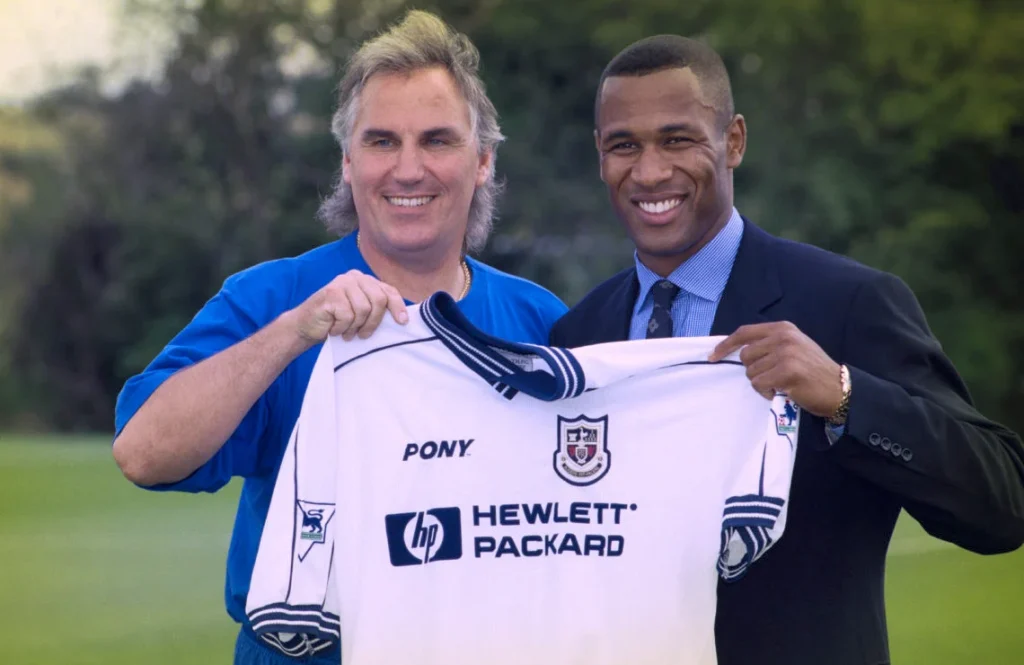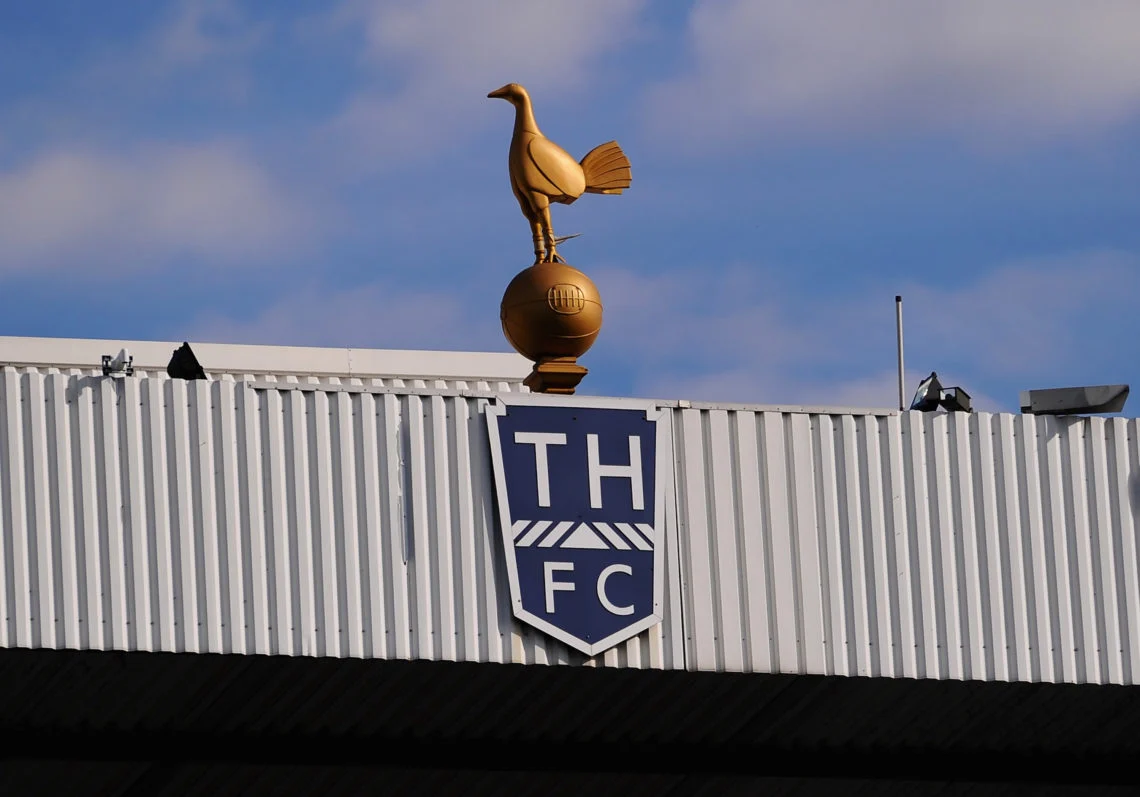Tottenham Hotspur now boast some of the finest facilities in world football—a gleaming, state-of-the-art stadium and a world-class training complex at Hotspur Way.
Yet, there was a time when the club’s infrastructure and professionalism fell far short of expectations. Les Ferdinand, the former England striker, recently opened up about his disappointing first impressions after joining Spurs in 1997, admitting he questioned his decision almost immediately.
Ferdinand arrived at White Hart Lane in a £6 million move from Newcastle United, fresh off a prolific spell that had cemented his reputation as one of the Premier League’s most lethal forwards. But his excitement quickly turned to doubt.
“On day one, I thought, ‘Have I made a mistake?'” Ferdinand revealed on the High Performance Podcast. “It just wasn’t professional enough. Everything about the club at that time felt below the standard you’d expect from a club like Tottenham.”
His frustrations extended to the training facilities, which he described as inadequate. With a hint of irony, he noted that the club’s kit sponsorship by Pony—a brand synonymous with casual footwear—felt strangely fitting. “It was almost symbolic,” he said. “The setup just didn’t match the ambition a club of Tottenham’s stature should have.”
The instability behind the scenes only compounded his unease. In his first five years at Spurs, Ferdinand played under four different managers while the boardroom underwent its own upheaval.
Such turbulence, he suggested, reflected a club lacking direction—a far cry from the well-oiled machine Newcastle had been during his time there.
Ferdinand’s time at Tottenham, though respectable, never reached the heights of his previous stints at Queens Park Rangers and Newcastle. In 147 appearances, he scored 39 goals—a solid return, but a noticeable drop from his earlier exploits.
At Newcastle, he had netted 50 times in just 84 games, while at QPR, his 83 goals in 171 matches made him a fan favorite.

The dip in form wasn’t purely coincidental. Ferdinand’s dissatisfaction with Spurs’ environment likely played a role. When a player feels a club’s standards don’t match their own, performance inevitably suffers. For a striker who thrived on confidence and consistency, the chaotic backdrop at Tottenham hardly provided the ideal conditions to excel.
Fast-forward to today, and the contrast couldn’t be starker. Under Daniel Levy’s leadership, Tottenham have transformed into a club with elite infrastructure. The Tottenham Hotspur Stadium, opened in 2019, is a marvel of modern design, setting new benchmarks for fan experience and commercial potential.
Meanwhile, the Hotspur Way training complex rivals the best in Europe, offering players cutting-edge facilities to hone their craft.
Levy has faced his share of criticism—some justified—particularly regarding transfer strategies and on-pitch results. But his vision for the club’s facilities is undeniable.
Where once Spurs lagged behind their rivals, they now lead. The days of subpar training grounds and a lack of professionalism, as Ferdinand experienced, are long gone.
Ferdinand’s recollections serve as a reminder of how far Tottenham have come. His experience highlights the importance of infrastructure and stability in a player’s success—factors that modern Spurs players now take for granted.
While the club’s trophy cabinet may still crave more silverware, there’s no denying that Levy has built a foundation worthy of a top-tier institution.
For Ferdinand, his spell at Spurs remains a chapter of unfulfilled potential. Had he joined the club in its current state, with its world-class facilities and greater stability, perhaps his goal tally would have mirrored his Newcastle and QPR days.
Instead, his story stands as a testament to how much has changed—and how critical the right environment is for a player to thrive.
Tottenham’s journey from mediocrity to excellence off the pitch is a narrative of progress. And while debates over Levy’s legacy will continue, one thing is certain: no future Spurs signing will ever walk into the training ground on their first day and think, “I’ve made a mistake.”

